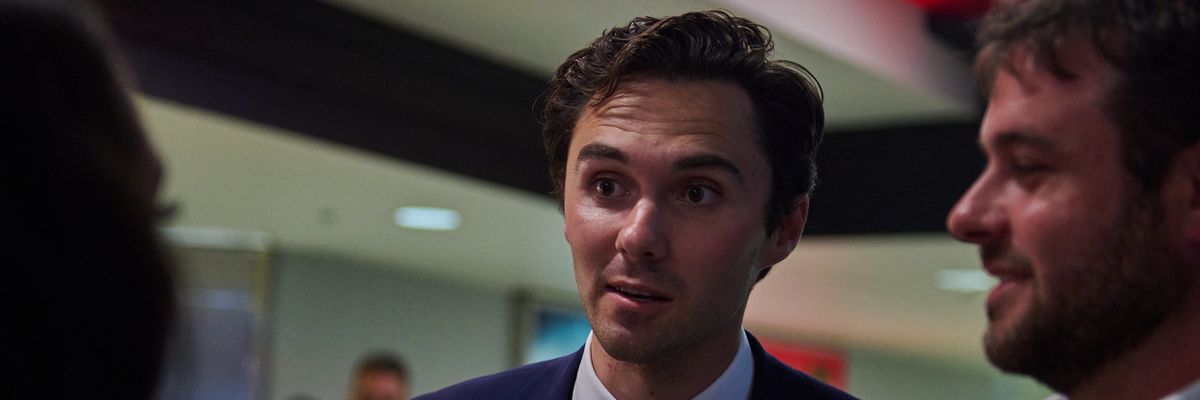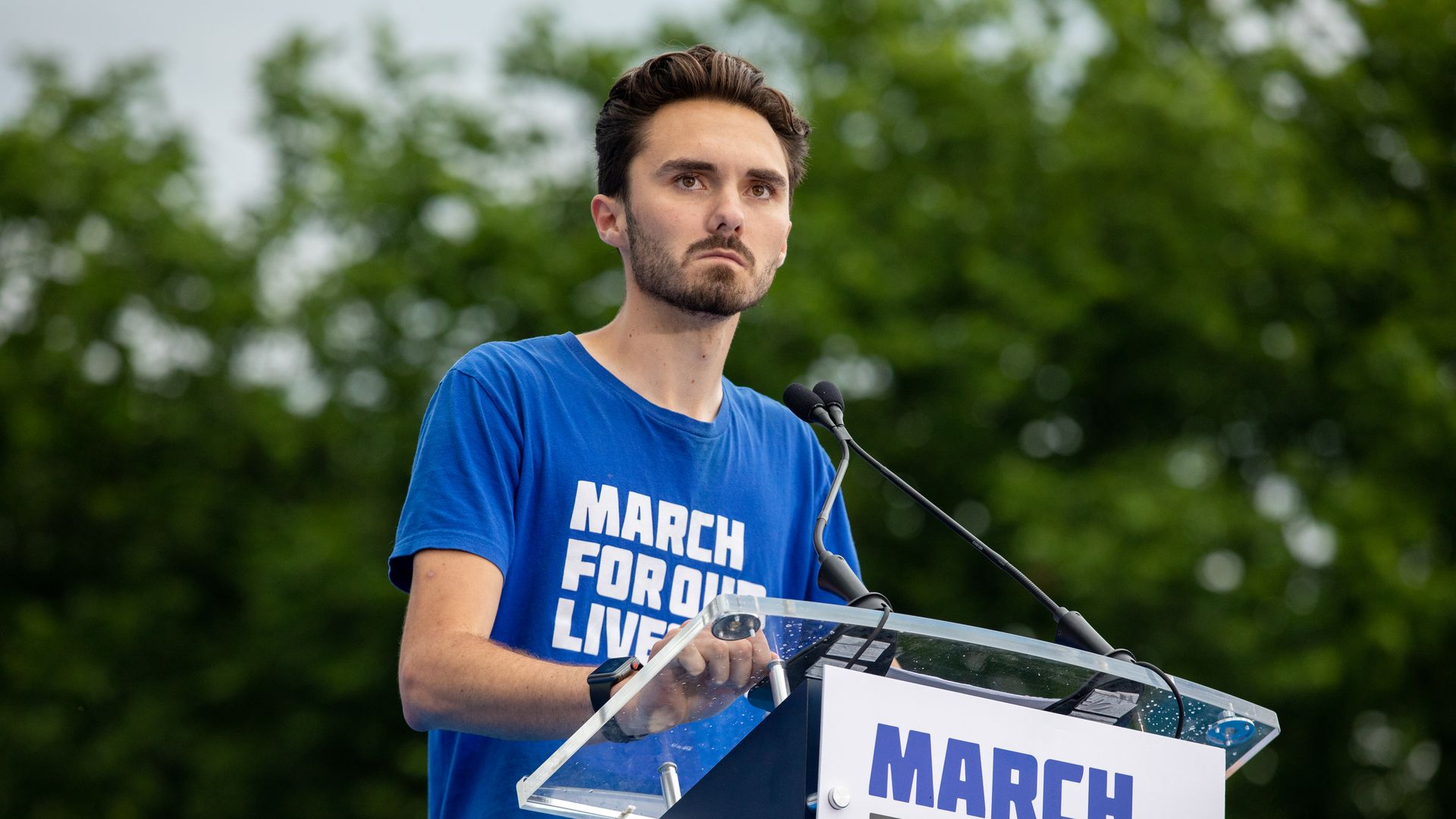David Hogg's DNC Role: Backlash & The Future
Is it possible for a survivor of unimaginable tragedy to transform into a political force, challenging the established order? David Hogg, a name synonymous with resilience and advocacy, is doing precisely that.
Hogg, a survivor of the 2018 Stoneman Douglas High School shooting in Parkland, Florida, has emerged as a prominent figure in the gun control movement. His activism, fueled by the devastating experience he endured, has propelled him into the national spotlight, making him a voice for change and a symbol of hope for a generation grappling with the realities of gun violence. His leadership extends beyond advocacy; Hogg has become a significant player within the Democratic Party, taking on a role that places him at the center of political strategy and internal debate.
The Democratic National Committee (DNC) has become the new battleground for Hogg, where his ambition to reform the party is clashing with the traditional power structures. Recent developments show an internal struggle, pitting Hogg's vision for a more youth-driven and progressive party against the concerns of party veterans. The DNC's response reflects the complex dynamics within the party, as they grapple with how to accommodate a new generation of leaders and their potentially disruptive strategies. This situation underscores the intense scrutiny and the complex web of alliances and conflicts inherent in modern American politics.
- Love Is Blind Kenneth Brittanys Split What Went Wrong
- Freddie Powell Catherine Love Is Blind Uk Updates Drama
Hogg's entry into the DNC vice chair role marks a historic moment, as he becomes the first member of Generation Z to hold such a prominent position within the Democratic Party. This milestone underscores a generational shift in political leadership. His presence in a position of power gives him the ability to influence the direction of the party, challenging the status quo and advocating for policies that reflect the values of younger voters. This shift signifies a conscious effort by the Democratic Party to engage a new demographic, responding to the need for fresh perspectives and innovative approaches to political discourse.
However, his rise to influence has not been without its challenges. He's encountered resistance from within his own party, highlighting the deep-seated divisions and ideological clashes that often characterize the American political landscape. The backlash he's received serves as a reminder of the complexities of political maneuvering, and the constant need to navigate both external opposition and internal differences. In a political environment frequently marked by partisan divides, Hogg's journey is a testament to the power of individual agency, and how it is possible for it to reshape established norms.
The DNCs internal struggles over Hogg's influence have highlighted the tension between maintaining party unity and embracing the energy of a new generation of leaders. While the DNC chair, Ken Martin, has expressed support for Hogg's service, tensions remain. Hogg's dual role as a DNC vice chair and the president of Leaders We Deserve, an organization aiming to elect younger Democrats, has led to difficult questions about the lines between his party responsibilities and his outside political activities. This is where a clash of visions is most evident. The internal debate is not merely a disagreement over policy, but a struggle over the fundamental direction of the party.
- Zulekha Haywood From Supermodels Daughter To Body Positivity Success
- Braylin Bailey Latest Scenes Updates You Wont Miss
One of the central components of Hogg's activism has been his work in gun control advocacy. The "March for Our Lives" rally, which Hogg helped organize, drew hundreds of thousands to the National Mall in Washington, D.C., a direct response to the gun violence tragedy he had experienced. He has been a consistent voice for stricter gun laws, fighting for reforms, and advocating for the end of senseless gun violence.
His work has had a noticeable impact on the political landscape. Hogg's influence extends beyond rallies and marches; he has also been involved in initiatives, such as the $20 million campaign to elect younger Democrats. His political activities, which target key electoral battles, reflect his belief that political change requires strategic action. His campaign shows the drive and passion of a new generation looking to disrupt the political status quo.
The political dynamics surrounding David Hogg and the Democratic Party point to a crucial period of transition. His experiences, from tragedy to activism, have made him a symbol of this evolution. The unfolding situation involving Hogg and the DNC is likely to remain in the spotlight, representing both the changing face of American politics and the impact of individual actions on the nations political evolution.
| Category | Details |
|---|---|
| Full Name | David Hogg |
| Date of Birth | Born in 2000 (Age 24 in 2024) |
| Education | University of California, Los Angeles (UCLA) - Political Science |
| Known For | Activist, Gun Control Advocate, DNC Vice Chair |
| Notable Achievements |
|
| Current Affiliations | Vice Chair of the Democratic National Committee, President of Leaders We Deserve |
| Key Activities | Organizing protests, advocating for gun control legislation, political campaigning. |
| Impact | Has motivated increased political engagement from younger generations and increased attention to the gun control debate. |
| Criticisms | Received negative comments and accusations from conservative media outlets. |
| Social Media | Twitter (@davidhogg111) |
| Reference | Wikipedia |
Article Recommendations



Detail Author:
- Name : Arianna Hackett
- Username : breana96
- Email : ebert.margarett@gmail.com
- Birthdate : 2003-02-11
- Address : 221 Huel Haven Apt. 107 New Rhodaburgh, ND 81670
- Phone : 1-615-899-4135
- Company : Nolan, Weber and Swaniawski
- Job : Technical Program Manager
- Bio : Ipsa quidem vitae iure. Ipsam dolorem omnis quisquam distinctio exercitationem eaque deleniti et. Quo quo et maiores sequi.
Socials
instagram:
- url : https://instagram.com/robin9584
- username : robin9584
- bio : Ex non quos omnis in. Accusamus consequatur et sint ullam enim maxime.
- followers : 6060
- following : 2393
tiktok:
- url : https://tiktok.com/@robin_nolan
- username : robin_nolan
- bio : Cupiditate suscipit eos in ut praesentium. Praesentium sunt impedit quo et.
- followers : 2568
- following : 1480
twitter:
- url : https://twitter.com/robin_nolan
- username : robin_nolan
- bio : Delectus exercitationem exercitationem beatae aliquam id. Ex eaque quidem et perferendis voluptatem totam et. Est in eum accusamus blanditiis est.
- followers : 2970
- following : 1756
linkedin:
- url : https://linkedin.com/in/robinnolan
- username : robinnolan
- bio : Quo minus sapiente labore quibusdam amet.
- followers : 5870
- following : 1687
facebook:
- url : https://facebook.com/nolanr
- username : nolanr
- bio : Magnam non et tempora commodi voluptates modi.
- followers : 2648
- following : 2923